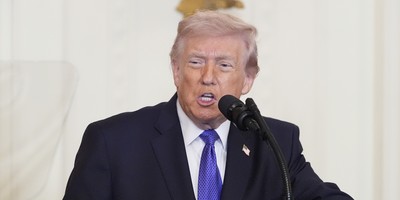The recently revived idea of creating a government-run health plan to compete with private insurers may reinforce the impression that President Obama and his allies in Congress are standing tall against those corporate fat cats who delight in denying lifesaving care to children and old ladies. But Obama and the insurers still see eye to eye on a central element of his health care agenda: the requirement that every American obtain medical coverage.
It's obvious why the insurers like this idea. What industry wouldn't welcome a law that forces everyone to buy its product? But the insurers also argue that a mandate will help control costs, and the president agrees. Judging from the experience in Massachusetts, which imposed its own insurance requirement in 2006, they're both wrong.

Because he wants to show that an insurance mandate is fair as well as fiscally wise, Obama focuses on uninsured Americans who skip out on their medical bills, leaving policyholders and taxpayers with the tab. "Such irresponsible behavior costs all the rest of us money," he said in a speech last month.
Perhaps so, but it's not very much money. In a 2008 Health Affairs article, George Mason University economist Jack Hadley and three co-authors calculate that "uncompensated care represents 2.2 percent of health spending in 2008."
Obama came closer to explaining the real motivation for the insurance mandate when he said that "unless everybody does their part, many of the insurance reforms we seek -- especially requiring insurance companies to cover pre-existing conditions -- just can't be achieved." He worries that insuring older, sicker people will be prohibitively expensive unless the young and healthy are forced to subsidize them.
The insurers are more forthright on this point, warning that insufficient penalties for failing to buy insurance will result in "adverse selection," fueling the rise in premiums. Yet the penalties in Massachusetts are faster and heftier than the ones proposed in the bills Congress is considering, and the state continues to experience rapid health care inflation.
Recommended
Since 2006, Michael Cannon notes in a recent Cato Institute paper, health insurance premiums in Massachusetts have risen by 8 percent to 12 percent a year, almost double the national average. During the same period, total medical spending has increased by 28 percent. The cost of subsidizing coverage through the state's Commonwealth Care program is expected to hit $880 million next year, 20 percent more than originally projected.
There are several reasons why mandatory insurance, contrary to Obama's promises, has been accompanied by rapidly escalating costs. First, when you subsidize something, people tend to consume more of it. Total spending is therefore bound to be higher, whether it's covered through direct taxes or through the indirect tax of forcing people to pay for insurance they don't want.
Second, despite stricter penalties, Massachusetts seems to be experiencing adverse selection. Cannon notes that, while the share of residents without insurance has shrunk from about 10 percent to about 5 percent, the proportion of uninsured people in the 18-to-25 age group has increased from 30 percent to 35 percent, indicating that "the young (and presumably more healthy) are less likely to comply with the mandate."
Third, requiring people to buy insurance entails defining the minimum level of coverage, which necessarily makes insurance more expensive than it would otherwise be. In effect, the government prohibits the cheapest insurance plans, the ones with the highest deductibles and the least generous benefits.
Defining one minimum medical package for the entire country, thereby inviting every health care interest to descend upon Capitol Hill and lobby for inclusion, will compound the inflation caused by state requirements. Cannon warns that such a federal standard could force 100 million Americans into more expensive plans while effectively banning the money-saving combination of high-deductible insurance and health savings accounts.
The upshot is a phenomenon we have seen many times before: Instead of protecting us from big business, big government buys it off with our money.























Join the conversation as a VIP Member